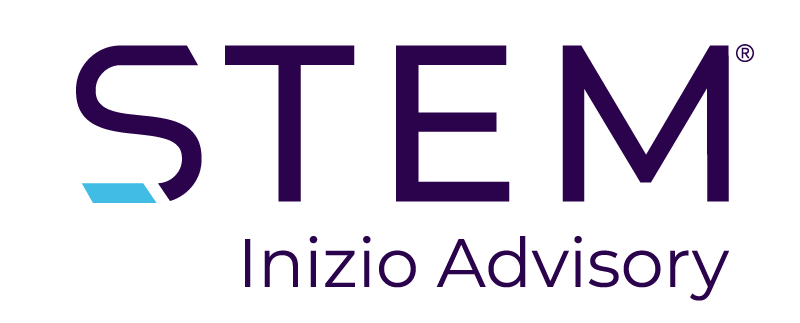Authored by: Adam Boucher, Innovation & Product Development
Understanding how physicians experience in-person field team engagement is one of the most
valuable insights a pharmaceutical brand can wield to gain a competitive advantage.
The ability to analyze what field teams discuss versus how a physician receives information allows for strategic agility, which is extremely powerful for a brand. It is listening in real-time to what our customers value and translating this feedback to facilitate refining a customer strategy.
Customer experience is changing the game for pharmaceutical brands while delivering better human health.
That’s why we’ve been working hard at STEM to evolve our unique offering by encompassing customer experience feedback. And now, having run a series of pilots in eight markets using different questions and methodologies, we’re sharing what we’ve learned from developing HCP360° – our new insight offering.
Three pharmaceutical challenges
The pharmaceutical industry knows the importance of understanding customers’ needs better, and there is a genuine desire to provide more meaningful and relevant engagements – ultimately enhancing the customers’ experience with their field-based medical, commercial, key account management, and market access teams.
But three key industry themes remain a consistent challenge for pharmaceutical companies to deliver a better customer experience:
- Healthcare professionals (HCPs) access has become more difficult
- The competition for HCP attention is high
- HCPs now have a plethora of potential information sources at their fingertips
There is a race to understand what customers (physicians and HCPs) value to gain a competitive advantage, but traditional research solutions have limitations.
While advanced analytics platforms can generate vast amounts of data related to HCP online behavior, the requisite equivalent data and insights for in-person interactions with pharma field teams are somewhat lacking, especially in relation to customer experience and what physicians find valuable.
That’s why analysis of in-person field team interaction remains a key part of the customer engagement strategy as it informs the optimization of these important customer experiences.
Field teams are well positioned to provide a more connected experience for customers – bridging in-person and technology solutions. They can be the ideal customer experience orchestrator as they have a deep and real-time knowledge of the HCP, having nurtured and developed relationships – understanding which channels to leverage to deliver content effectively.
And that is echoed by statistics that show that emails sent to HCPs from field team members receive a 35% average open rate versus a 3% average open rate from corporate headquarters, and 66% of physicians want to receive them [1].
As we’ll detail later, physicians also want and value talking to field teams in person or screen-to-screen. And in a world where data and technology are abundant, it is easy to miss the valuable insights in-field interactions provide.
Given the importance of these HCP meetings, there is a requirement for the brand and the field teams to continually assess what the physician took away from the session. What was the customer’s experience?
And some solutions in the market provide variations of feedback, but they have limitations.
Deeper insight into field team in-person engagement
More traditional methods of collecting customer experience feedback from HCPs through Awareness Trial Usage (ATUs), Detail Follow Ups (DTUs), surveys, advisory boards, or in-house CRM systems have limited utility for a better understanding of in-person engagements.
For instance, specific brand-focused questions don’t address the engagement experience, so it’s hard to understand the value of the meeting from the physician’s perspective. Another common challenge is the time lag between the actual engagement and when a physician may be asked to recollect this discussion via an online survey, with sometimes several weeks separating the two.
Some methods of gathering these insights can also require payments to physicians, which in turn often have burdensome administrative processes, contracts, and reporting.
Finally, many pharmaceutical companies’ CRM systems only capture certain data sets which allow specific quantitative inputs but with limited or no functionality for field teams to record insights or discussion notes in free text formats.
An evolution to HCP360° sees 95% participation
Given the limitations of these traditional methods, we were well-positioned to develop HCP360°, and following successful pilots, we have officially launched it as a new service.
HCP360° is unique – with our experienced specialists conducting in-person observations between field teams and HCP’s and engaging with physicians once the interaction has finished – yielding valuable insights.
These deep insights then inform strategic alignment and execution – measuring strategic impact from customer feedback.
To validate our approach, we first conducted a series of pilots across eight geographies with commercial and medical field teams from a range of pharmaceutical companies to test and optimize.
HCP360° approach
The approach was a 5-10 minute in-person interview with 6-8 questions. An online version of the interview was available for those HCP’s willing to give feedback but lacking time.
With the previous barriers to HCP time versus the value of insight, we found it extremely positive that:
- 95% of the total HCPs asked agreed to participate
- 86% of the total HCPs asked completed feedback
- 99% of HCPs, when given the choice of the short interview versus the online survey, chose the short interview straight after the interaction
- In pilots, where only an online version was offered, 54% of HCPs who agreed to participate completed it
HCP360° methodology
Our methodology included observing the whole engagement with the field teams and asking the HCP for feedback after the field team member left the room. Questions comprised 1-10 scores and HCP rationales to explain these reasons. All questions were pre-approved through our client’s normal MLR approval processes and centered around three core areas specifically related to the engagement that had just happened:
- The value of the discussion
- The key takeaway or topic from the interaction
- How could future engagements be improved?
HCP360° findings
Understanding specifically ‘what’ enhanced the HCP experience and ‘why’ the HCP felt this to be the case is extremely valuable and led to deeper insights to optimize customer experience and, therefore, brand performance.
One such insight was around the value the HCPs attributed to the ‘product information’ discussed during the engagements versus the field team’s perceptions of what they thought the HCPs found to be of most value. For this point alone, we saw significant differences in opinion, with twice the number of HCPs stating that this was the aspect they valued most compared to the field team’s perception that this was less valuable.
And one of the real learnings from the pilot has been that pharmaceutical field teams’ perceptions of what they think HCPs find valuable, impactful, and want more or less of, are commonly misaligned with their customer’s feedback. It is only by understanding what customers really think that refining a customer engagement strategy and enhancing the customer experience of these critically impactful and important touchpoints starts.
It’s abundantly clear that in-person field team interactions are of high value for the physician, the brand, and the field teams to refine the customer experience.
One of our clients, a VP of US Medical Affairs, agrees, adding that, “the insights about being able to compare the HCP’s views on what they most valued during the interaction vs. the MSL’s perception of what they THOUGHT the HCP’s valued were incredibly useful. There’s a big disconnect there, and this is the root cause that explains many other elements of how the MSLs engage their HCPs.”
Key takeaways on understanding how physicians experience in-person field team engagement for a competitive advantage
The pharmaceutical industry is committed to delivering an optimized customer experience in a competitive, complex, and time-poor healthcare environment.
Those brands that can harness the feedback and insights and leverage this understanding of what customers value can integrate these learnings into their strategies, content, messaging, and engagement strategies, enhancing every in-person and omnichannel touchpoint that exists on the customer experience journey.
Contact us to learn more aboit how you can optimize your customer engagement.
Source: Veeva. 2023. Guide to digital HCP engagement. [Online]. Available from: https://www.veeva.com/resources/guide-to-digital-hcp-engagement/. [Accessed 12 July 2023].

Related reading.
Jump to a slide with the slide dots.
Will 2025 be a tipping point to unlock innovation in pharma commercialization?
Explore how AI is revolutionizing pharma, driving efficiency & impact. Get expert insights & trends for 2025. Download the report now!
Read moreFrom metrics to impact: Selecting the right measures to determine MSL value
From metrics to impact selecting right measures to determine msl value.
Read moreEnhancing pharma brand performance through in-depth customer engagement insights
In today’s dynamic pharmaceutical landscape, having a high level of strategic alignment and the flawless execution of this strategy is crucial.
Read more